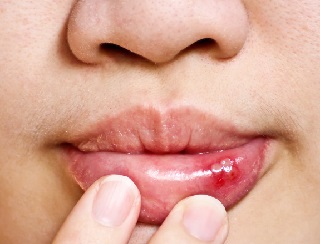Mouth Cancer Action Month
In the UK more than 7,800 people were diagnosed with mouth cancer last year and globally there are in excess of 300,000 new cases every year. Mouth cancer diagnosis have increased by over a third in the last decade and it is one of the few cancers that is predicted to see an increase in diagnosis in the coming years.
Causes of mouth cancer
Mouth cancer can affect anyone. However, there are a number of lifestyle factors which can increase your risk of developing the disease. These include:
 Smoking and Alcohol
Smoking and Alcohol
Smoking tobacco and consuming large quantities of alcohol are the two main risk factors for mouth cancer. To reduce your risk be sure to keep your alcohol consumption within the weekly guidelines and consider quitting smoking. Your dentist will be able to direct you to other services which can help you quit.
Diet
A poor diet can increase your risk of developing mouth cancer. This can be due to a lack of vitamins and minerals. A diet high in fresh fruit and vegetables seems to reduce the risk of developing mouth cancer. Foods high in antioxidant vitamins help to prevent damage to body cells.
 Sunlight and Sunbeds
Sunlight and Sunbeds
Skin cancers are relatively common on the face and neck as these are areas most often exposed to ultra violet light. Both the sun and tanning beds give off ultra violet rays. These rays can cause skin cancers in unprotected skin. To reduce your risk be sure to use a high factor sun cream on your face and neck to help reduce expose to ultraviolet rays. If you still want that sun kissed look there are many self-tanning products available which pose no risk to your health.
Human papillomavirus (HPV)
HPV is the major cause of cervical cancer and affects the skin that lines the moist areas of the body. HPV can be spread through oral sex, and research now suggests that it could soon rival smoking and drinking as one of the main causes of mouth cancer. Practicing safe sex and limiting the number of partners you have may help reduce your chances of contracting HPV.
Signs of mouth cancer
 There are a number of signs which you should look out for and these include:
There are a number of signs which you should look out for and these include:
- Mouth ulcers which do not heal within three weeks
- Persistent pain or discomfort in your mouth
- A white or red patch in your mouth
- Unusual lumps in your mouth or around your jaw area
It is important that if you notice any of these things that you get them checked out by a dentist. Each time you attend for your routine dental check up your dentist will perform a mouth cancer assessment. Another great reason to ensure you attend for routine appointments as often as the dentist recommends.
If you are worried about any changes you have noticed or would like to discuss how you can best reduce your risk factors for mouth cancer, call The Dental Studio on 01206 845891 and book an appointment.


